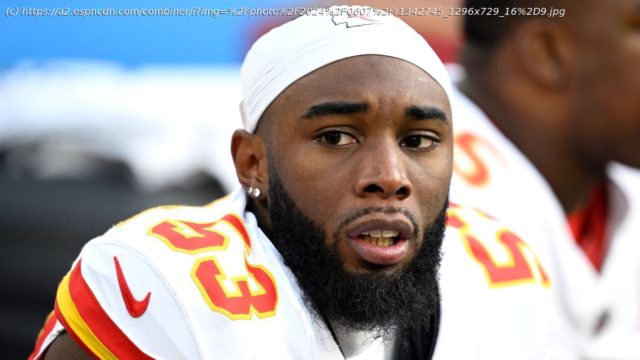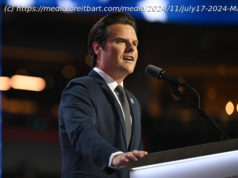ESPN spoke to leading cardiologists and experts about heart health in elite athletes and what links, if any, exist between cardiac issues and the COVID-19 virus and vaccine.
Kansas City Chiefs defensive end BJ Thompson suffered a seizure and then went into cardiac arrest at the team’s practice facility. Thompson, 25, was transported to the hospital by ambulance and was reported to be in stable condition. The Chiefs sent home players and rescheduled their offseason practice.
It is one of several recent heart-related events for notable athletes.
In December 2023, Luton Town captain Tom Lockyer suffered cardiac arrest on the pitch during his team’s match at Bournemouth. On July 24, 2023, then-18-year-old USC freshman guard Bronny James — the son of Los Angeles Lakers star LeBron James — suffered cardiac arrest during a workout at USC. In January 2023, Buffalo Bills safety Damar Hamlin, then 24, suffered cardiac arrest during a game against the Cincinnati Bengals. In June 2022, then-incoming USC freshman center Vince Iwuchukwu, then 19, suffered cardiac arrest during a workout. In June 2021, Danish midfielder Christian Eriksen, then 29, suffered cardiac arrest on the pitch during a Euro 2020 match.
In all six instances, the athletes received immediate care from trained specialists and survived. In May, Lockyer, who had a defibrillator fitted after his December incident, said he hopes to return to the pitch but that he’s “at peace” with the prospect of retirement, too. James, Hamlin, Iwuchukwu and Eriksen have all been cleared to return to play — and, on Dec. 10, 2023, James made his season debut for USC in a 84-79 overtime loss against Long Beach State, scoring 4 points in 17 minutes of action off the bench.
Each situation drew international headlines and raised questions in and around the sports and medical communities about heart issues among young, seemingly healthy athletes. Studies have been commissioned by leading specialists, and cardiologists around the country have tried to address concerned parents, especially in the era of conspiracy theories and misinformation.
Today, after a yearslong pandemic and several rounds of new vaccines and boosters, cardiologists regularly face questions about how COVID-19 and its vaccines impact heart health.
“We are not seeing a signal that pre-COVID and post-COVID [cardiac] events are any different,” said Dr. Matthew Martinez, director of the sports cardiology and hypertrophic cardiomyopathy center at Morristown Medical Center in New Jersey, and a consulting cardiologist for the National Basketball Players Association.
“What we are seeing, however, is that more people are being evaluated as a result of COVID. So we’re making the diagnosis of underlying congenital heart disease in those who were unaware [they had it], like hypertrophic cardiomyopathy, more frequently than we did before. And because of the fear of myocarditis from COVID, more and more parents and more and more athletes are saying, ‘Hey, I have these symptoms, and I’m worried about it,’ and they’re seeking medical attention.”
Myocarditis is the inflammation of the heart muscle, and it can be found in or develop from viral infections or sometimes in autoimmune diseases. “These inflammatory mediators get stuck inside the heart muscle, and they can make the heart muscles sluggish,” said Dr. David J. Engel, director of the sports cardiology program at NewYork-Presbyterian/Columbia University Irving Medical Center. “And so the pumping strength of the heart goes down, and people can get really sick from it.”
Hypertrophic cardiomyopathy is increased muscle thickness in the heart, and, according to Martinez, it’s a common genetic heart disease found in about one in every 500 people worldwide, according to a 2015 study published in the Journal of the American College of Cardiology.
Home
United States
USA — Science Bronny James and what to know about heart health, COVID-19 and vaccines






